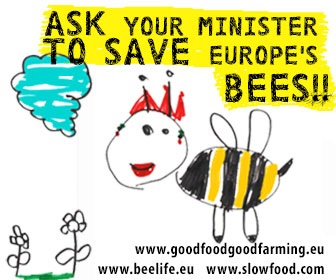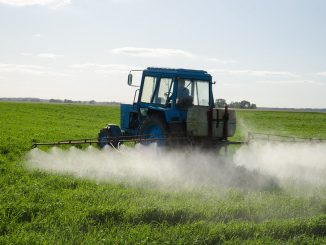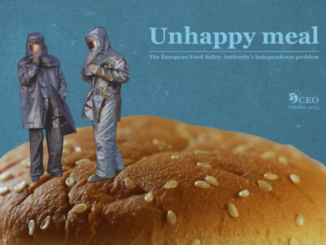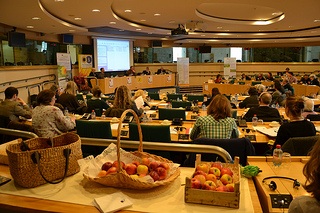Another crunch vote is coming up in the bees vs neonicitonoids saga. EU member states will vote today – April 29th – via their Ministers for Agriculture, vote on the neonicotinoids ban proposal once again. Ahead of the vote, ARC2020, Slow Food and the European Beekeeping Coordination launched an EU-wide campaign, asking citizens to contact their Agriculture Minister directly and ask them to support the Commission’s proposal for a partial ban on bee-harming pesticides.

Following the European Food Safety Authority (EFSA’s) findings in January, the Commission proposed a ban on the use of 3 clothianidin, thiamethoxam or imidacloprid for an initial 2 year trial period. This was only for crops that bees find attractive – maize (corn), rape seed, sunflowers and cotton.
Here’s how the representatives of individual countries on the EU Standing Committee voted on 15th March:
13 member states (Slovenia, Sweden, Poland, the Netherlands, Luxembourg, France, Spain, Denmark, Cyprus, Belgium, Italy, Latvia and Malta) supported the ban; nine (Slovakia, Romania, Czech Republic, Portugal, Austria, Hungary, Lithuania, Ireland and Greece) rejected the ban. The UK, Germany, Finland, Bulgaria and Estonia abstained.
This did not provide an overall majority, which necessitates the upcoming vote.
Recent campaigns have highlighted pollinator friendly farming, while a new report has underscored the perilous situation for bees.
However the Corporate Europe Observatory (CEO) has revealed what they claim is “an all out lobbying war”, which exposes the extent and vigor of pressure on politicians and the EFSA since a ban of an individual neonicitinoid, Thiamethoxam, emerged in France in 2012.
Lobby pressure includes the commissioning by Bayer of “an independent panel of bee scientists” who were, “in fact, the company Exponent®, which specialises in defending products from regulation” CEO claim.
CEO also host a letter which contain what they claim contains a potential legal threat over an EFSA press release and also a request for “access to documents such as all the draft versions of the press release, internal correspondence and the preparatory meeting notes that led to the draft.”
CEO adds that there was even a request from Syngenta for “handwritten notes of internal EFSA meetings”.
Behind the scenes then, it seems that the pressure will continue to be strong on legislators in the lead up to this next vote.
Citizens too, have the opportunity to maintain pressure on their respective agriculture ministers over the next two weeks. ARC2020, Slow Food and the European Beekeeping Association have today launched a campaign to encourage citizens to directly contact their national Agricultural Ministers to ask them to support the decision to save Europe’s bees.
Related news:




